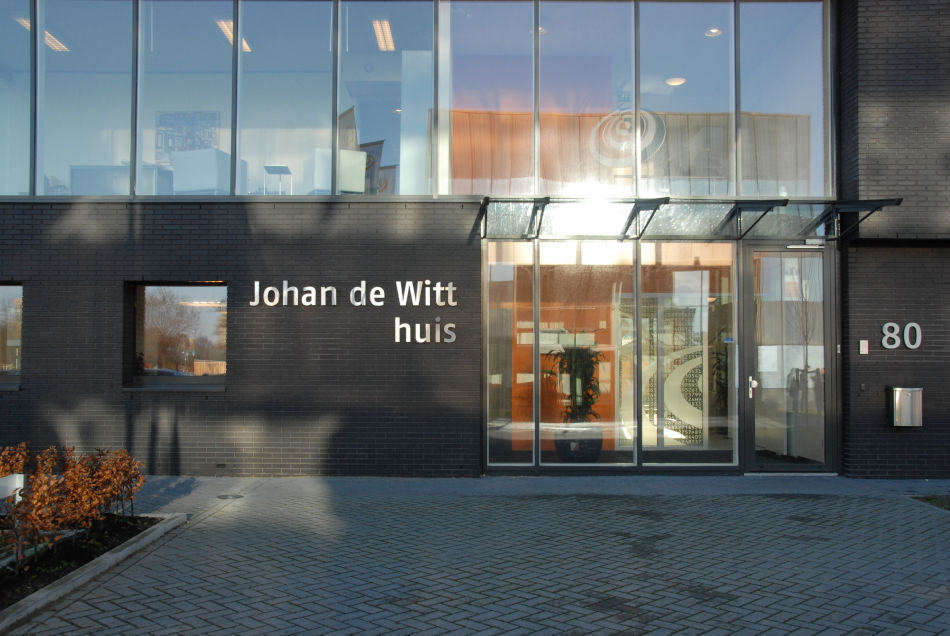Royal Dutch Actuarial Association: Being an actuary: A ticket to the world
Text: Eva Menger | Photos © Willy Slingerland

I f one were to describe the classic profile of an actuary, it is likely to include the words mathematical, strategy and risk. As a profession that few people know about, a general misconception is that it is restricted to the insurance, finance or pension industries. Ron van Oijen, chairman of the Royal Dutch Actuarial Association (Koninklijk Actuarieel Genootschap) wants the world to know that there is more to it: “Being an actuary is a guaranteed ticket to a promising international career.”
Van Oijen: “Few know what an actuary is. It certainly wasn’t something that I had heard of until someone else recommended it to me. I then started looking into it and soon learned that it was considered to be among the top three best jobs in the Netherlands. Knowing that it would bring me a high level of job security and fantastic international opportunities, I didn’t have to think about it for very long. And the prospect of daily strategic puzzling wasn’t bad, either.”
Van Oijen completed his degree at the University of Amsterdam, which, back in the day, was the only university in the Netherlands that offered a complete degree in actuarial science. “One of my biggest dreams had always been to move abroad, which is why I arranged a study exchange in San Francisco for my final year. On arriving, I was immediately asked to work on a university project with a professor – and when I started to run out of money, my academic expertise allowed me to find a part-time job before I had even started looking. And that’s exactly what’s so amazing about this profession: the title alone is enough to take you anywhere.”

Future technology, business and people concept – businessman and businesswoman using virtual screen projections
The job
So what does an actuary do? Essentially, they are professionals that provide financial institutions, businesses and government bodies with the information needed to make well-considered decisions. They think out scenarios to identify, quantify and explain the risks involved and subsequently come up with solutions. Traditionally, they are employed within the insurance and pension industries, but the emergence of data has made it that now pretty much any industry can benefit from bringing actuaries on board. Before an organisation decides to implement change or introduce new business models, actuaries will use data to assess possible repercussions. Ultimately, this allows them to come up with solutions or even new products. “Actuaries are increasingly collaborating with marketers,” says van Oijen.
The work is comparable to that of risk analysts, though the main difference is that actuaries are specialised in cases that have an impact on someone’s life. “A classic example is workplace pensions,” van Oijen states. “Taking into account age, job title, salary and professional risks, it’s our job to decide how much employers should be contributing to their employee pensions. Or take car insurance; in order to come up with the right level of cover, we have to carefully calculate the probability of risks. A young person with a sports car, for example, is typically advised to pay more than an older person with a station wagon.”
But it does not stop there: “All industries have to deal with risks,” van Oijen explains. “Especially now that there’s so much data available, actuaries can find themselves working in any field from architecture to shipping. They might even be asked to calculate the cost of covering Dutch international Frenkie de Jong’s legs.” It is this strong ability to solve problems and balance interests which van Oijen thinks makes actuaries so employable: “Studying actuarial science helps you develop skills that are transferable.”

The Royal Dutch Actuarial Association
Formed in 1888, The Royal Dutch Actuarial Association aims to position the profession against relevant social issues. The association keeps track of developments and trends in the pension, insurance and healthcare industries as well as data science and risk management. When these developments started to significantly change the actuarial profession, the association established the Actuarial Institute in 1994. Here, practising actuaries get all the retraining they need to stay on top of industry trends – a requirement if they want to keep their title actuary AG (which, to the business, radiates guaranteed quality).
In addition, the institute offers the Executive Master of Actuarial Science (EMAS). Coming from a small, private, educational institution, EMAS is designed around state-of-the-art models and methods for risk management and measurement. Taught by academic and practical lecturers from leading universities and companies, courses are interactive and always reflect topics that are relevant to the industry at that moment in time. What is more, graduate students qualify for the actuary AG title.

Are you a strategic thinker, analytical and naturally good at maths? Is building a versatile and international career something you have always dreamed of? Then becoming an actuary might just be for you. Visit the association’s website to find out more.
Subscribe to Our Newsletter
Receive our monthly newsletter by email




